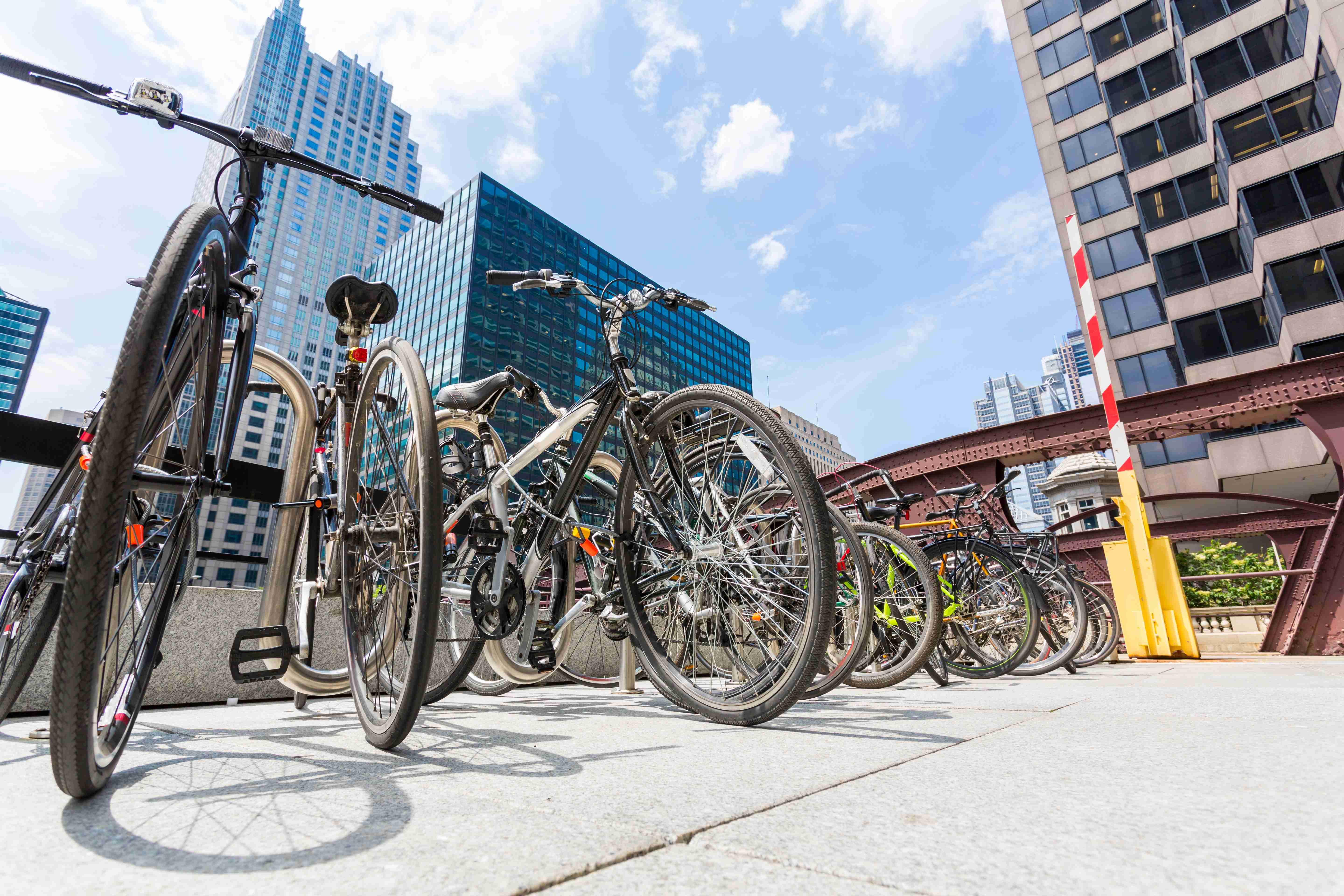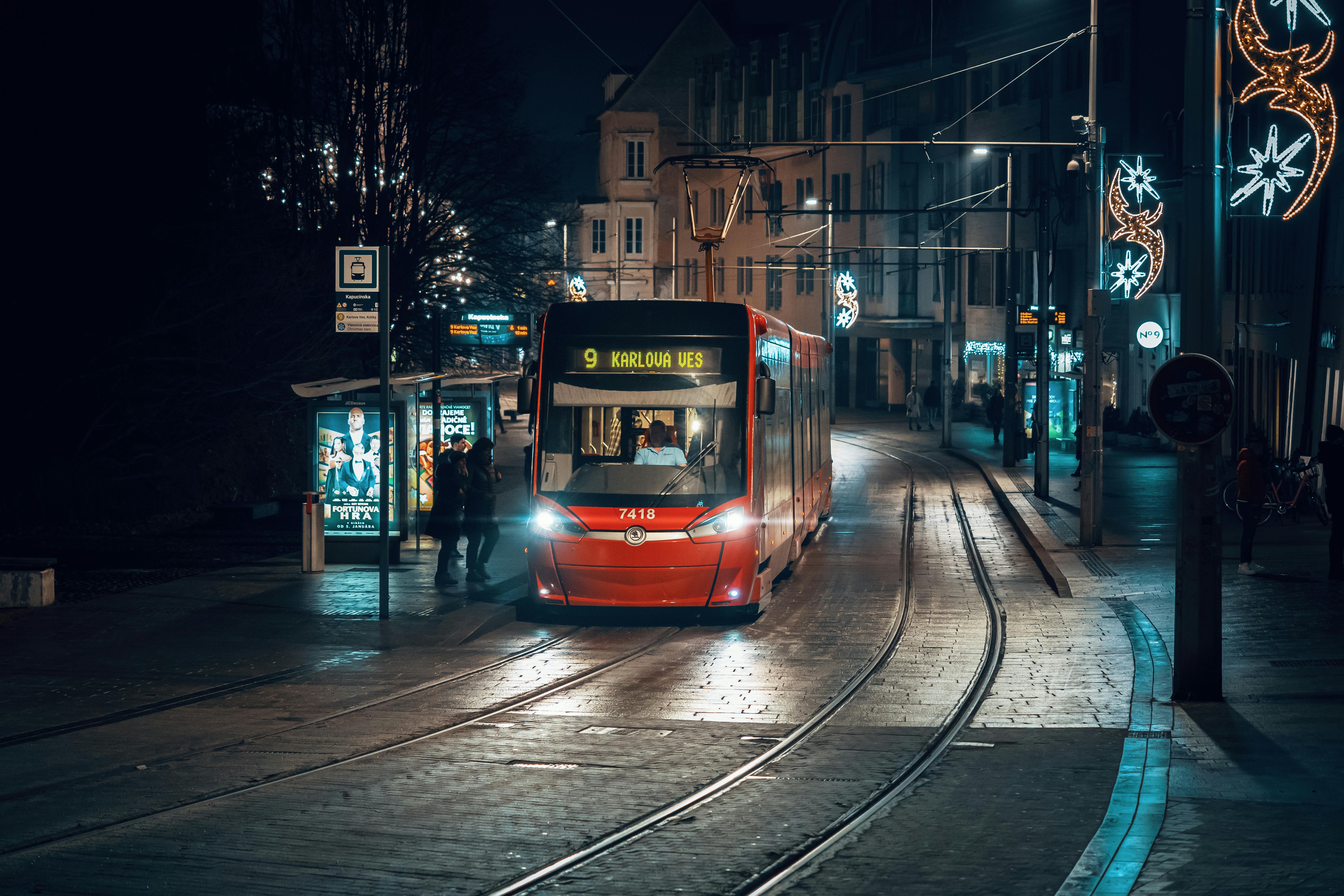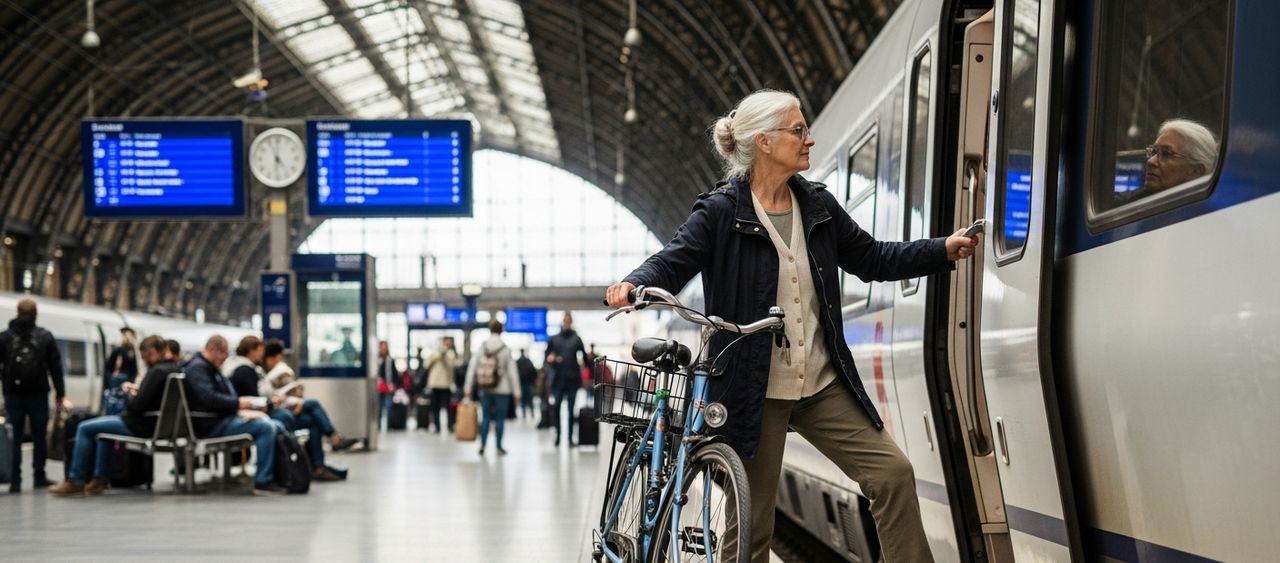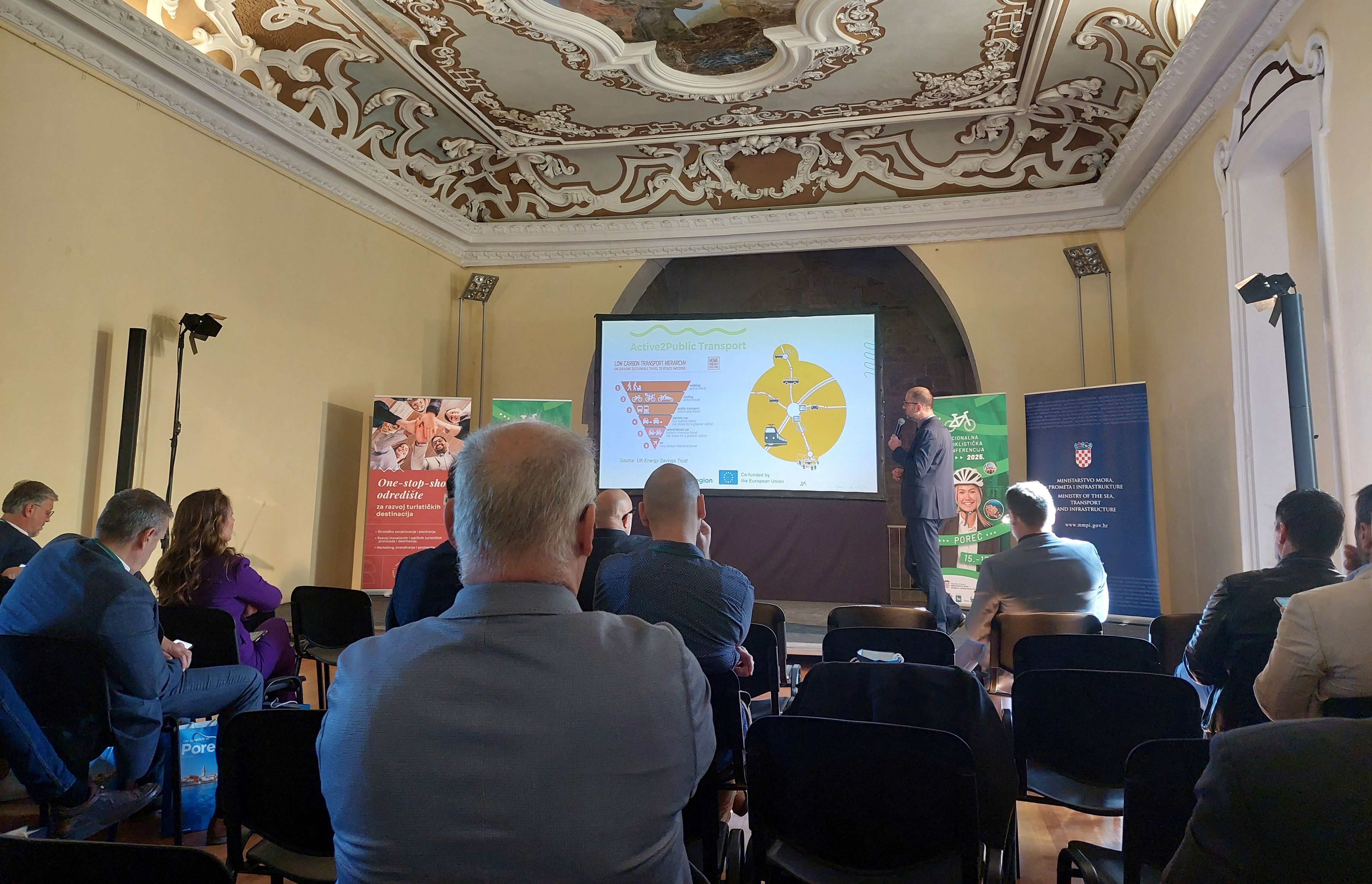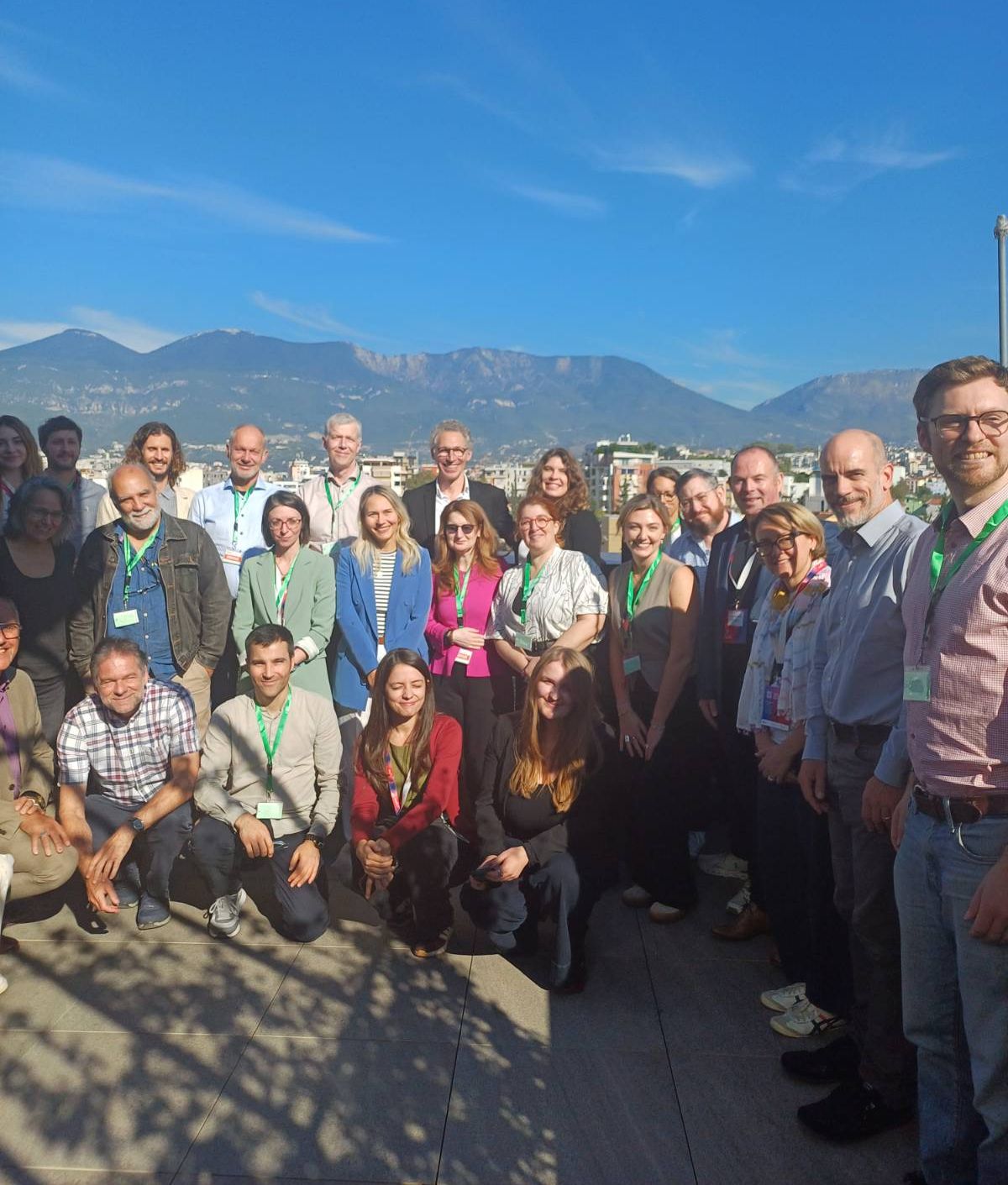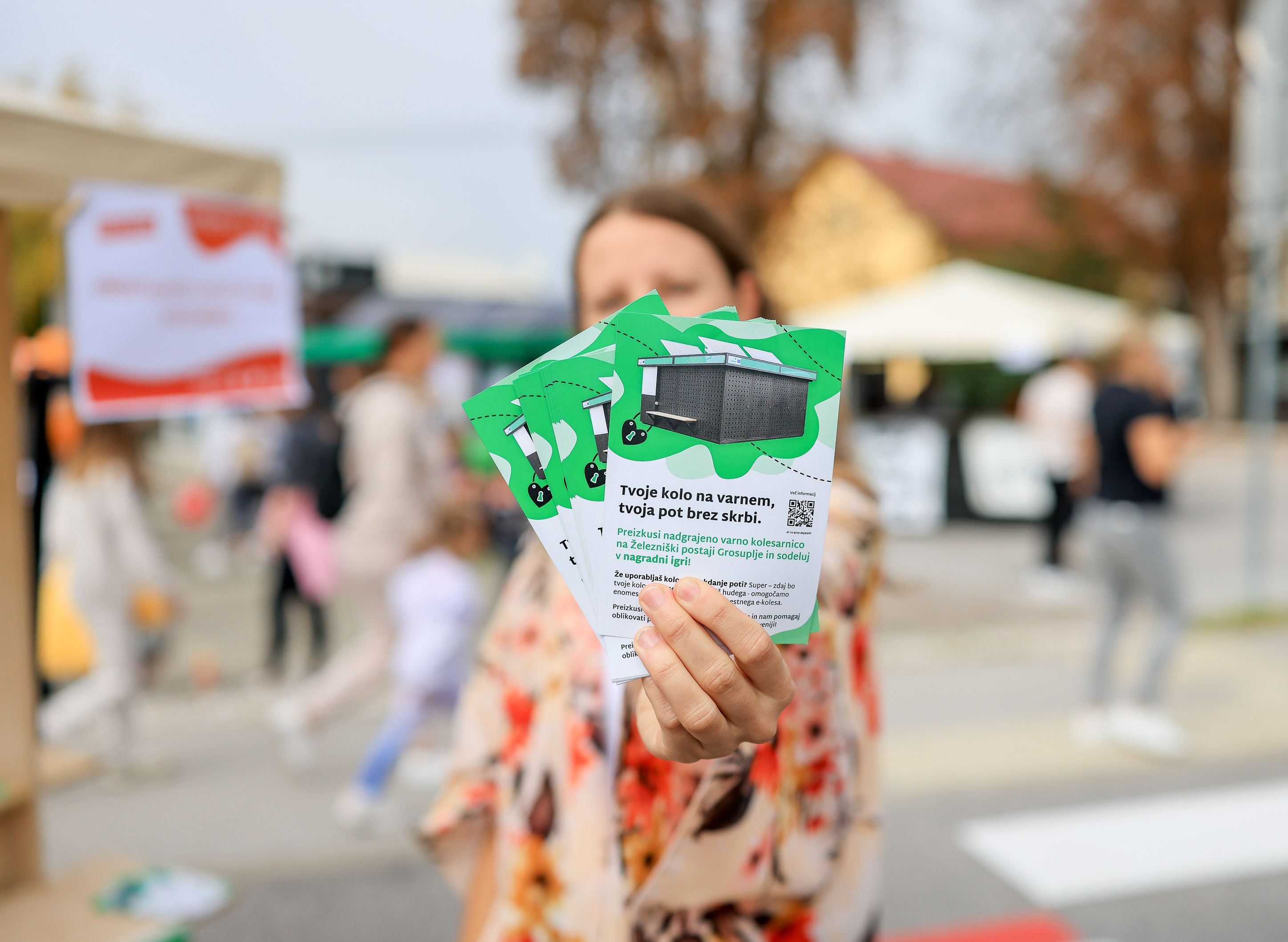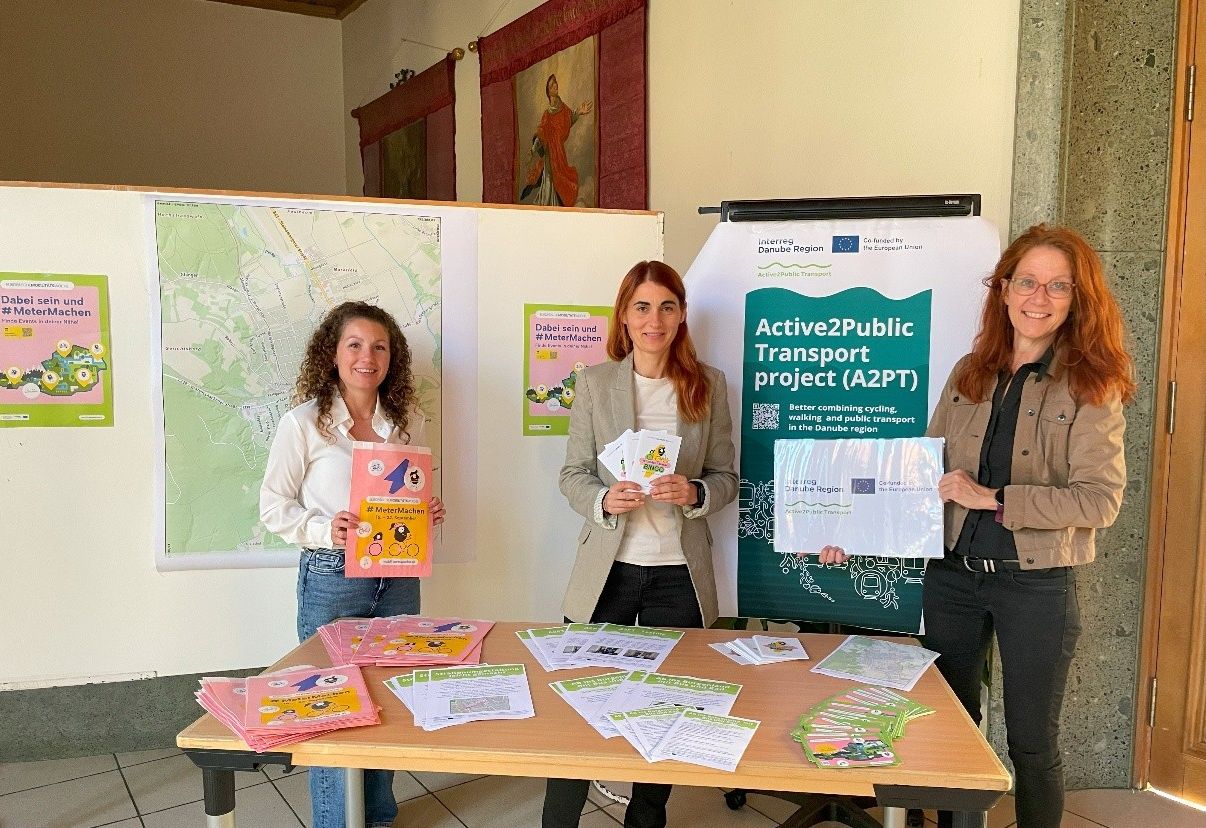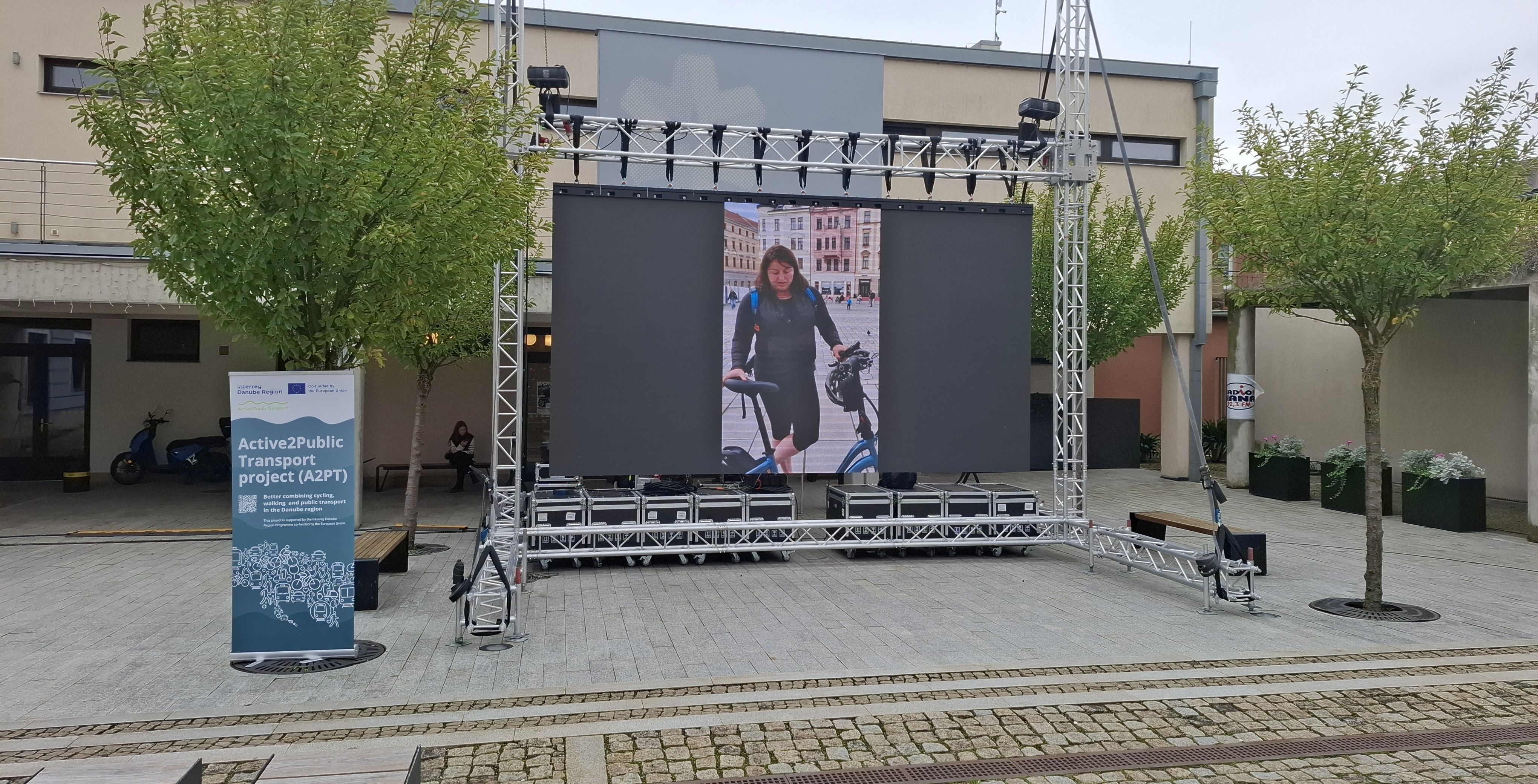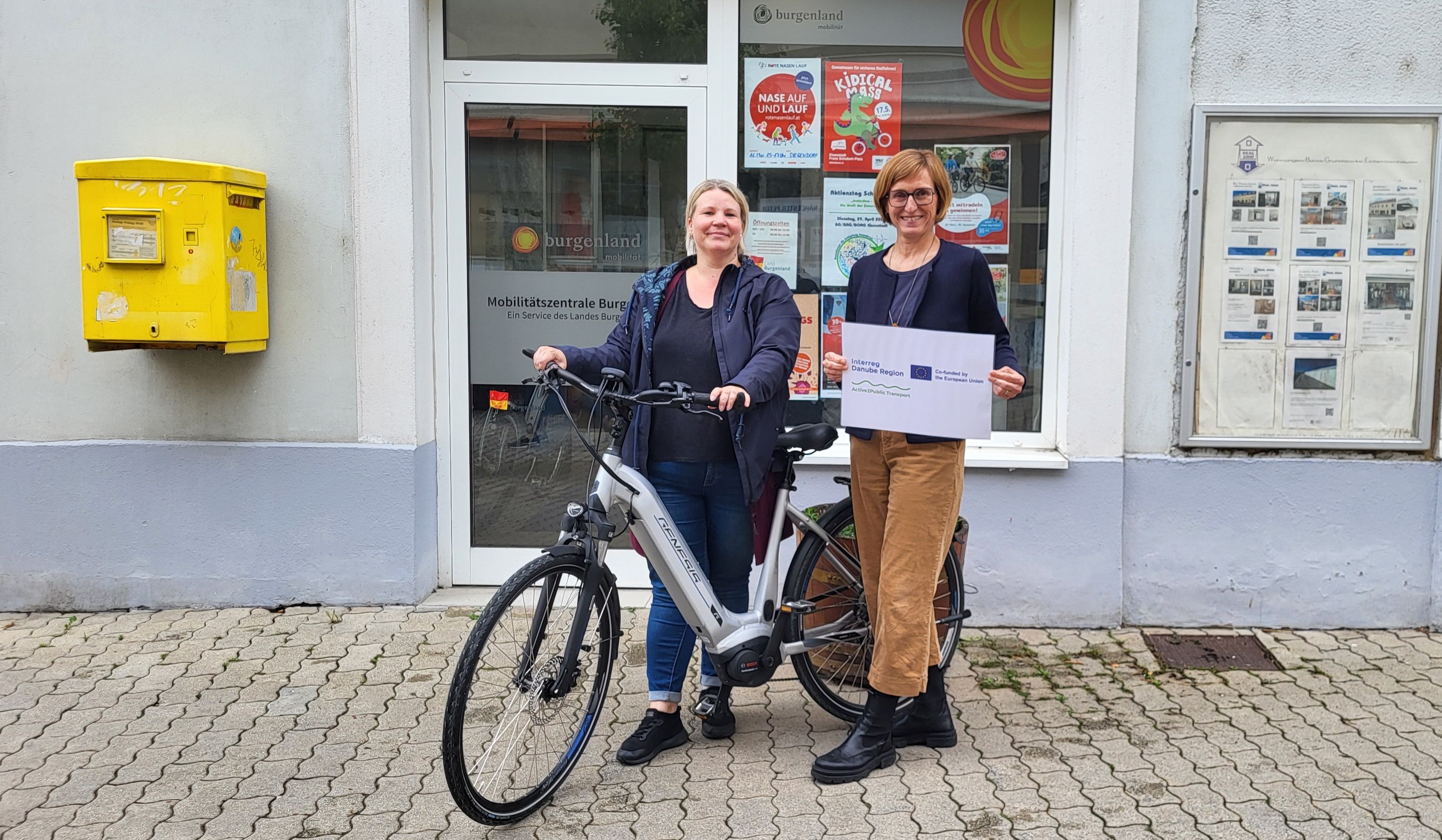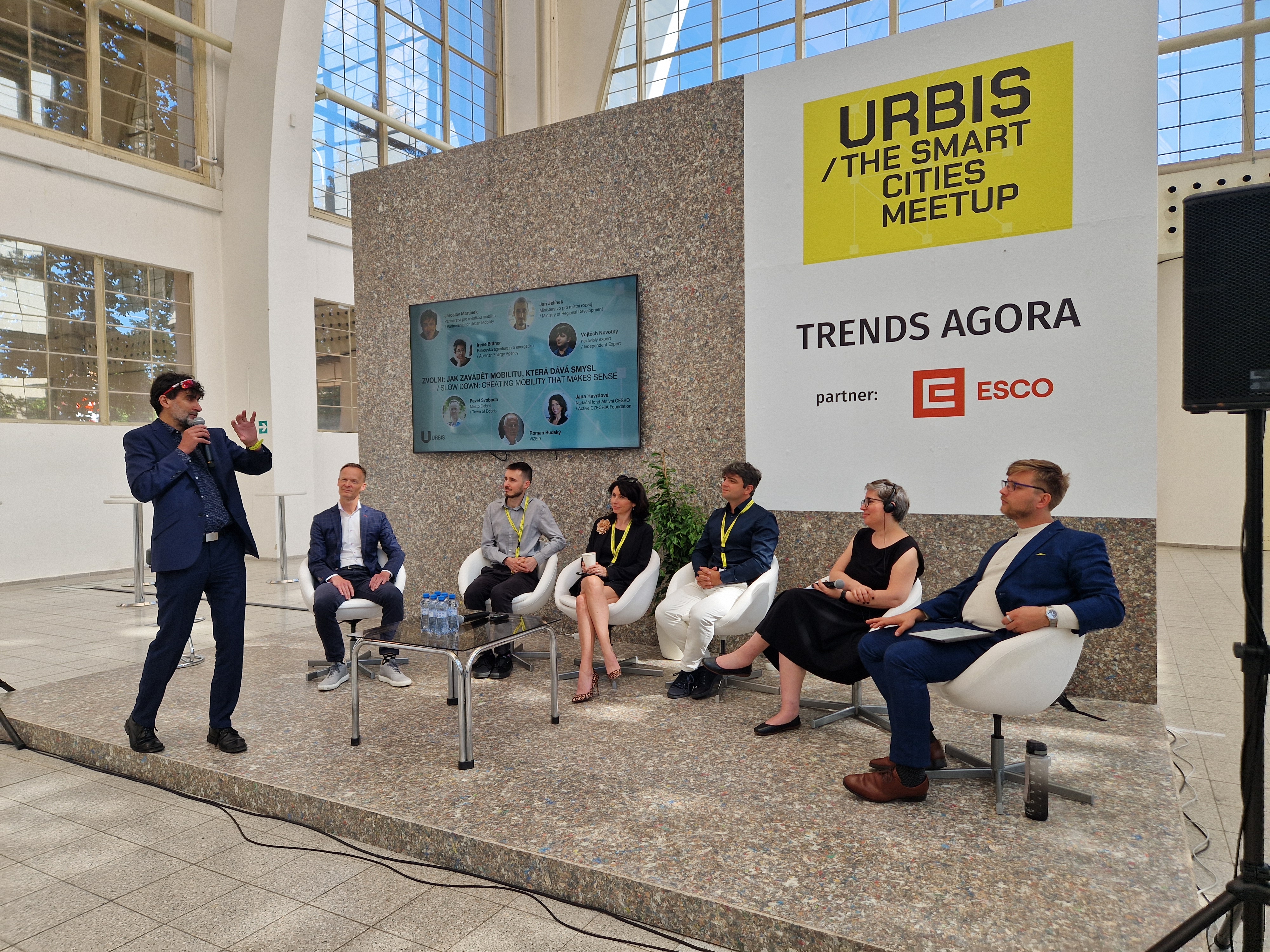
From Austria to Brno: How Active Mobility Can Transform Cities
Insights from URBIS Smart City Meetup 2025
On June 12, 2025, the URBIS Smart City Meetup in Brno became a vibrant forum for exchanging bold ideas on the future of urban mobility. A highlight of the day was the inspiring presentation by Irene Bittner, mobility expert and team member of the klimaaktiv mobil program management at the Austrian Energy Agency (AEA).
“klimaaktiv mobil—the Austrian national climate protection initiative—is more than just funding,” Bittner emphasized. “It’s a national framework that supports cities and regions through partnerships, consultation, training, and integrated strategies that enable long-term transformation.”
The Austrian Energy Agency is not only a central institution supporting sustainable mobility in Austria, but also serves as the lead partner of the Active2Public Transport (A2PT) project under the Interreg Danube Region Programme—an initiative that aims to better integrate active mobility with public transport to foster healthier and more sustainable cities.
In her presentation, Irene Bittner outlined several pilot actions being tested in nine countries across the Danube region. These include temporary street transformations, secure bicycle parking at train stations, and innovative integrated ticketing systems that connect train travel with active modes. These practical measures show that even modest incentives—like offering participants a free public transport pass and access to a bike or e-bike for four weeks—can spark real behavioral change.
The entire session was expertly moderated by Jaroslav Martinek, Executive Director of the Partnership for Urban Mobility and National Cycling Coordinator of the Czech Republic. His deep-rooted commitment to sustainable transport brought cohesion and insight to the discussion.
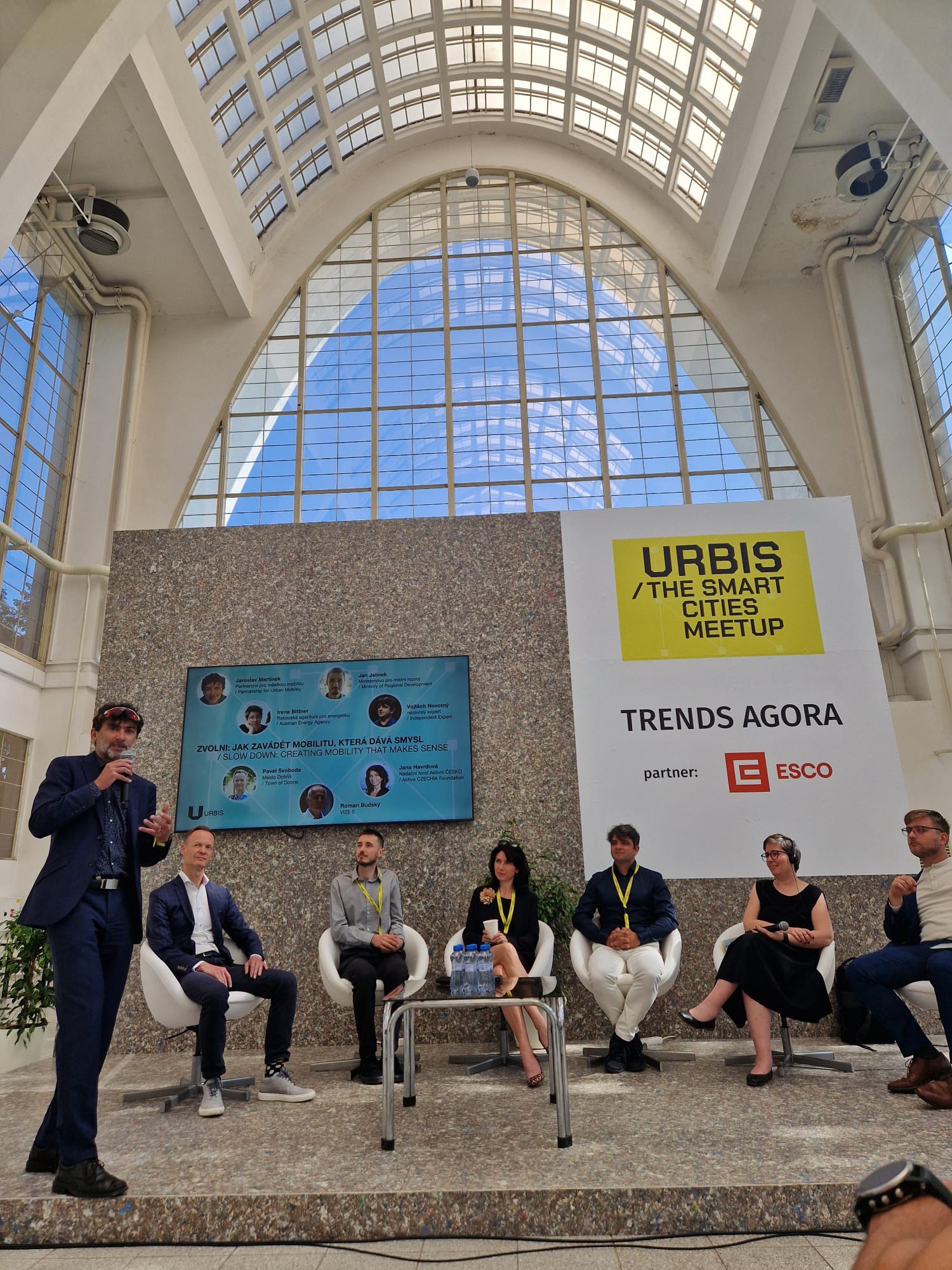
Photo: © Jitka Vrtalova | Partnership for Urban Mobility
Mobility and the Czech Cities
Following Irene Bittner’s keynote, a panel of Czech experts brought valuable local insights on how to implement similar approaches in the Czech context:
Jan Jelínek from the Ministry of Regional Development emphasized the importance of long-term vision. “We need more than support for infrastructure construction—we need people-oriented development. Strategies like 15-minute cities must be integrated into broader Smart City frameworks,” he stated.
Roman Dostál, a transport safety specialist, highlighted the significance of emotional safety in public space design. “A street may comply with all regulations and still feel unsafe. If people don’t feel secure, they won’t walk or cycle.”
Jana Havrdová, a prominent advocate for active living, spoke about the health implications of sedentary lifestyles. “Physical activity isn't just about sport—it's a basic need. Supporting everyday mobility improves public health and reduces healthcare costs.”
Vojtěch Novotný from the Czech Technical University (ČVUT) reminded the audience that “a street is not just a traffic corridor.” He welcomed the legal recognition of shared zones in the Czech Republic, effective from January 1, 2024, noting that Austria served as an inspiration for this regulatory shift.
Pavel Svoboda, mayor of Dobříš in Central Bohemia, shared his hands-on experience with reimagining urban space. He introduced a “School Street” initiative and oversaw the reconstruction of Komenský Square, which included the removal of 26 parking spaces in the town center. “There was strong resistance at first, but after a few months, the public began to appreciate the positive change,” he explained.
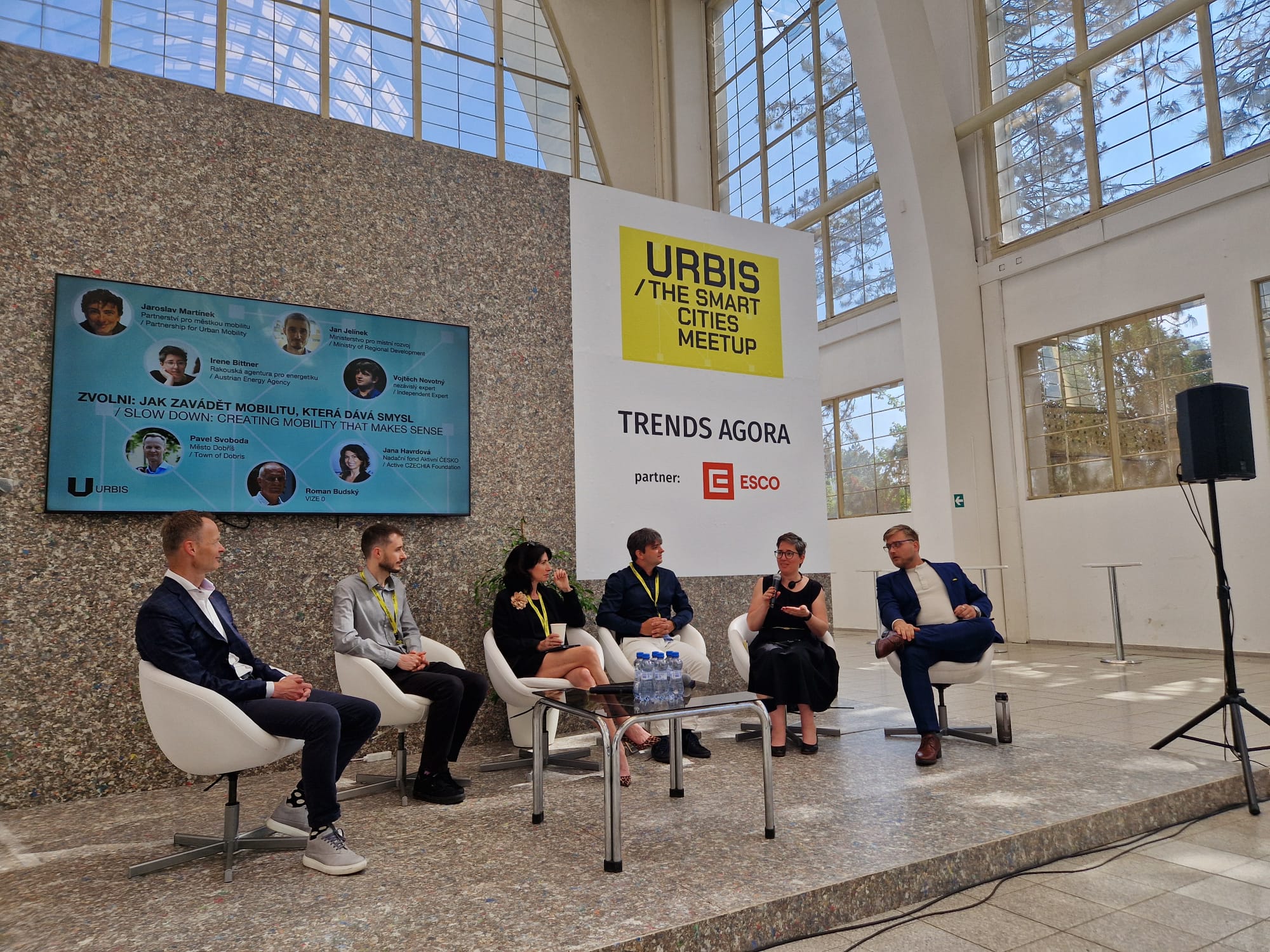
Photo: © Jitka Vrtalova | Partnership for Urban Mobility
Summary
The discussion also acknowledged a key challenge: while Czech cities often have solid strategies on paper, their implementation is held back by limited resources and weak cross-sector coordination. In this context, the Austrian klimaaktiv mobil model—with its blend of promotion, consultation, financing, partnerships, and training—offers an actionable and proven path forward.
The message from Brno was clear: Smart, safe, and people-first mobility is not a luxury—it’s a necessity. And events like URBIS, which foster international collaboration and the exchange of proven practices, are crucial for turning vision into reality.
As Irene Bittner concluded with a smile, “Every time I come to the Czech Republic, I take home pictures of beautiful cities. Now let’s make them even more livable—step by step, or pedal by pedal.”
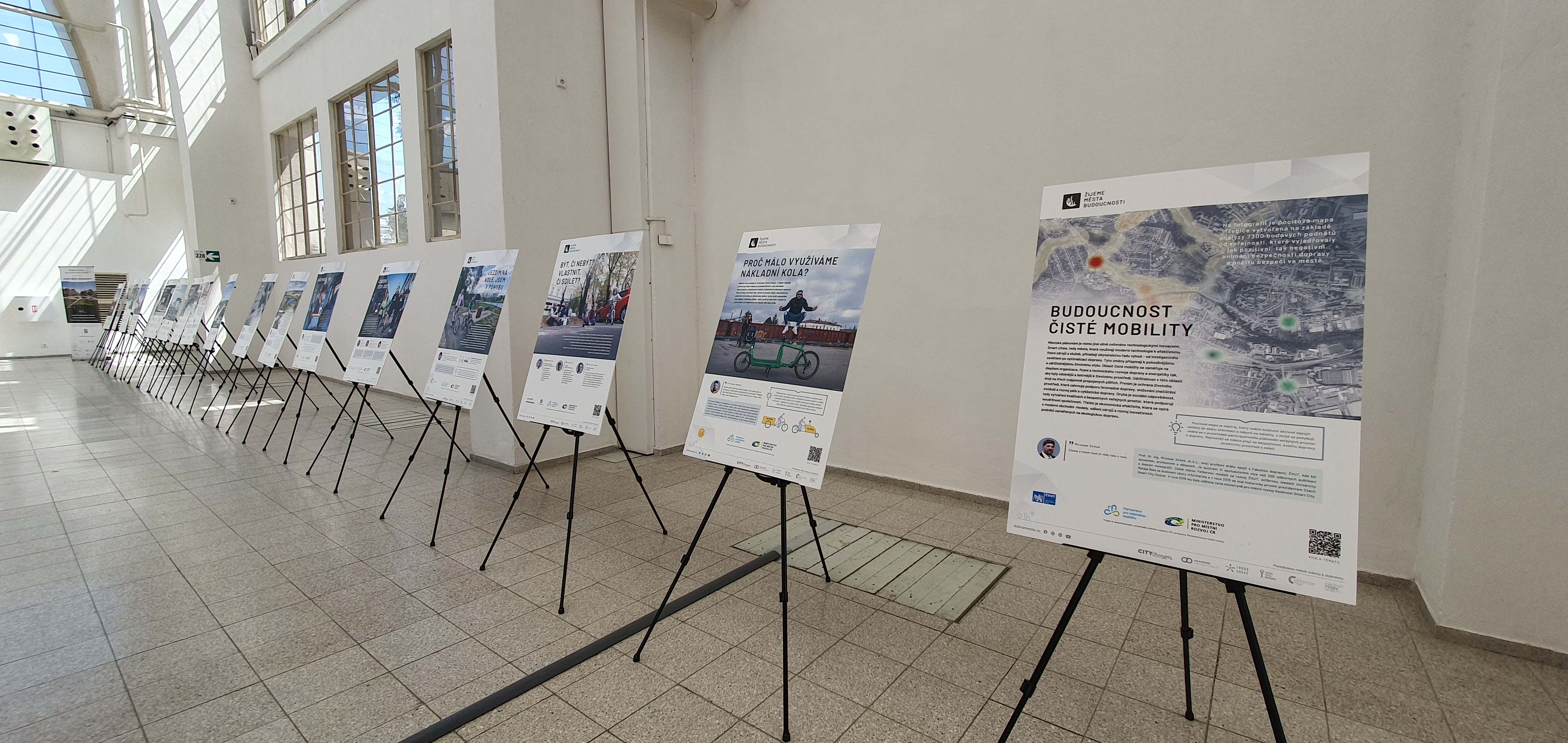
Photo: © Irene Bittner | Österreichische Energieagentur – Austrian Energy Agency
Download the presentation
News & Events
Read the most recent updates and explore the upcoming events.

